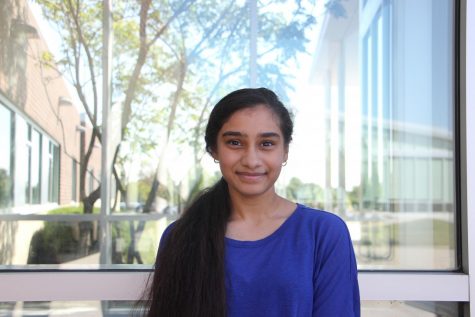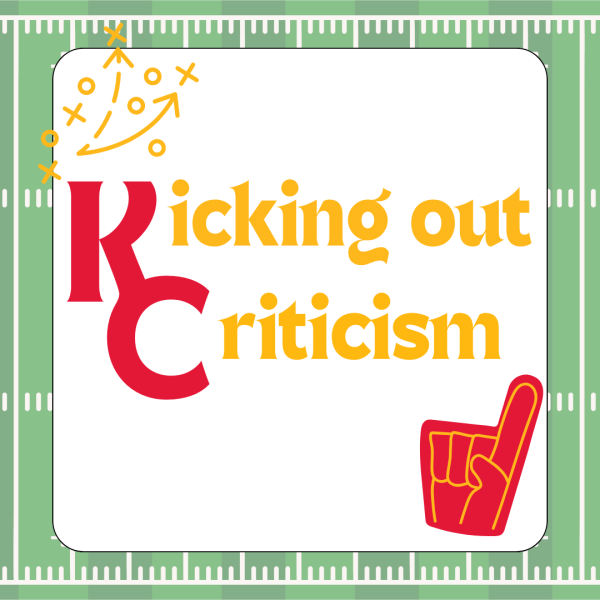Digital Limitation: Social media’s influence, especially on the spread and knowledge of news, should be reexamined
Social media has expanded its reach over time and has now become a prominent factor within everyone’s lives. Whether it be keeping in touch with friends, following the latest trends or discovering a new recipe, social media has a category for everything. However, most distinguishably is its influence on the spread and knowledge of information.
People are more informed than ever due to easy access to information and constant bombardment of it, however, the quality of what is presented is questionable. Take Snapchat for example. Most stories are tabloids of people who hardly anyone knows nor cares much about, but then some stories bring awareness or contain factual information about things in the world. Junior Sydney Gilman said there are two major categories: one important and another not so much.
“There’s categories of Youtuber or like social media drama that doesn’t really matter and it’s going to go away in a month,” Gilman said. “And then there’s the categories of national news that’s really important and people should know.”
Many people understand that the influencer drama is not important and they say they don’t care, but they still are curious about what’s happening. Gilman said the influencer news is a nuisance at most.
“Most of [the news online] is [important] but then some of the stuff is just kind of like ‘why am I reading this, why am I taking time out of my day?’” Gilman said.
At the same time, these types of attention grabbing headlines rake up views and earn the title of trending alongside more important and influential information. AP U.S. history and world geography teacher Mike Hardin said he strongly believes that some things shouldn’t be a part of the news and don’t deserve as much attention as they receive.
“No one should care what Kim Kardashian had for lunch,” Hardin said. “No one should even care anymore about her being a person than you or I … It’s more newsworthy because it’s trendy and she gets people’s attention.”
The lack of quality goes hand in hand with the increased quantity. It feels as though something new is being uploaded every minute and the never ending flow of information quickly becomes challenging to navigate. Moreover, the competition between sites and pages contributes massively to the decrease in quality and the increase in quantity. Gilman said the sheer amount of news she encounters is a lot to take in.
“It’s just so hard to keep up with. There are just so many things happening online, and you just never know what’s going to be next,” Gilman said. “It gets overwhelming with everything you have to do … And you don’t really get a chance to even process all that information.”
These sites not only release massive waves of news, but also reflect the viewer in some ways. As technology and screens have become increasingly accessible, people look for distractions every second of their lives. Hardin compared it to how people turn on the TV but then scroll through their phones.
“I think that that’s got to be part of why news doesn’t stay in the headlines as long because people are now, because of social media, ready for what’s next, and then what’s next, and then what’s next. And don’t focus on an issue for a sustained period of time,” Hardin said.
But, the most dangerous thing about having knowledge of topics influenced by social media is especially how it’s difficult to know the whole story from a single post or tweet. It’s easy to block oneself into a group or an echo-chamber where the same ideas and information will be refracted back. Hardin said being secluded into a safe corner does not develop oneself at all.
“A real problem is that we have allowed ourselves to select what we hear. And things that we don’t hear — things that disagree with our established knowledge — causes us cognitive dissonance,” Hardin said. “We are really good at rejecting. And we’re really good at eliminating our audio network from our hearing network.”
To prevent such biases to impose on someone, Hardin suggested keeping an open mind and finding further information on a topic.
“You need to make sure that you hear from people who disagree with you. You need to make sure that you hear from things that aren’t just one singular subject,” Hardin said. “Those are probably the two most important things.”
Being properly informed is something that equips one with the tools of understanding their surroundings as well as contributing to meaningful conversation. Sophomore Nathan Perdieu said being informed is a key aspect that everyone should implement.
“If you’re not informed about anything that’s happening outside, then you won’t know what’s going on,” Perdieu said. “You can’t really help yourself with lack of knowledge.”
It’s common knowledge that news in this fast-moving age becomes irrelevant within a few weeks. Consequently, important national or global issues go in waves of being everywhere on social media to being hardly seen. Gilman said the resurgence of information is good in a way because it signals more and more people knowing about a topic.
“Of course, it’s disappointing that it would go away at first, but it’s important that it does come back, especially if more people realize what’s going on if and when it does come back,” Gilman said.
A few issues have the fortune of remaining a topic of discussion throughout the entire time of their relevance. Hardin said the dependence of the resurgence or continuous relevance of an issue is directly correlated to the extent of an issue.
“I think the relevancy and staying power of an issue, or of information in the digital media sphere, is really largely dependent upon the magnitude of the issue. You have things like what Kim Kardashian ate for lunch [that] no one’s going to care about tomorrow. And they’re doing that to mindlessly scroll,” Hardin said. “The issue of migrant children at the border and Donald Trump’s administration’s treatment of that stayed relevant for the entirety of his presidency because the magnitude was so much greater.”
Unfortunately, some major issues become a trend. This ends up disguising the significance of an issue and the true goal is overshadowed. Gilman said that the Black Lives Matter movement had some aspects problematically transform into a trend.
“One example of that is people posting the black squares on Instagram. That’s not anything important; if you just put the black square, you’re literally just following the trend,” Gilman said. “You need to provide information about what is going on. There’s definitely a difference.”
And sometimes, news that has the potential to create an impact on society gets labeled as trendy and gets passed on. Hardin used Kanye West being open about his mental health as an example.
“I think that part of what you get out of that is stories, like the Kanye West story, could be used as a focal point to try and help make society more inclusive, and try to help make society more responsive and less judgmental. And it doesn’t, because it ends up just being a celebrity issue.”
The ways social media is used and depended on, especially in the course of obtaining information, needs to be reassessed.
“The longer this kind of stuff goes on without any sort of rethinking [about] how we engage with information, the more it can be damaging to the fabric of our culture,” Hardin said.













